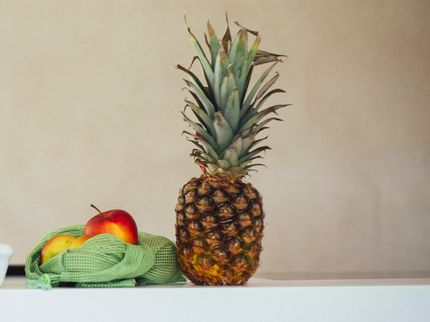Decline in fruit juice and fruit nectar lower than expected
Consumption of fruit juice and fruit nectars, which has been under increasing pressure for three years, fell less than expected in 2024. Overall, per capita consumption fell from 26 liters to 24 liters. Although consumption of 100% fruit juices fell by 2.5 liters, this was partially offset by the increase in nectars by 0.5 liters per capita.

Decline in fruit juice and fruit nectar lower than expected
Verband der deutschen Fruchtsaft-Industrie e. V. (VdF)
Orange juice was particularly hard hit, falling by 2.6 liters, but citrus nectars, grape juice, grapefruit juice and vegetable juices saw an increase. The reason for the decline in sales is the increased cost of raw materials, which has kept the industry on tenterhooks for years. For example, the price of a tonne of orange juice concentrate has risen from $2,000 to $7,000 in the past two years. This is due to the orange disease "greening", which is caused by a bacterium and leads to the death of entire plantations. Attempts are being made to counteract this development through plant cultivation and cultivation technology measures. On the other hand, late frosts for apples and rhubarb led to a lower harvest. There are also shortages of pineapples. The current tariffs, such as 12.2% on orange juice from Mercosur countries, are exacerbating the price increase and are therefore rejected by the VdF.
Worrying situation with pineapples
For several months now, another fruit has been difficult to obtain: pineapple. The main supplier countries Thailand and Costa Rica are particularly affected. In Costa Rica, the climate phenomena La Niña and El Niño have led to a lack of rainfall, resulting in smaller fruit and less produce available for the fresh market. This means that the situation on the world market is becoming even more acute: direct juice, which mainly comes from Costa Rica, has become significantly more expensive due to increased procurement costs. At the same time, the persistently inadequate water supply in Thailand - the world's most important supplier of concentrates - is leading to a decline in supply. As a result, many processing plants are currently unable to produce at full capacity. This is having a noticeable impact on the fruit juice industry in Germany and is increasing the pressure on producers: the tense market situation is becoming even more acute - with potential effects on availability and prices in the trade.
Criticism of tariffs
Tariffs of 8 to 16% are driving prices even higher. Of particular concern are the low stock levels in the supplier countries, which are leading to shortages ("out of stock" situations). The Association of the German Fruit Juice Industry (VdF) is therefore calling for the abolition of tariffs - particularly for pineapple (8 to 16% duty), but also for orange juice, which is taxed at 12.2% and is therefore also becoming more expensive for consumers. Tariffs hinder global trade and ultimately burden the end consumer.
Note: This article has been translated using a computer system without human intervention. LUMITOS offers these automatic translations to present a wider range of current news. Since this article has been translated with automatic translation, it is possible that it contains errors in vocabulary, syntax or grammar. The original article in German can be found here.
Most read news
Other news from the department business & finance

Get the food & beverage industry in your inbox
By submitting this form you agree that LUMITOS AG will send you the newsletter(s) selected above by email. Your data will not be passed on to third parties. Your data will be stored and processed in accordance with our data protection regulations. LUMITOS may contact you by email for the purpose of advertising or market and opinion surveys. You can revoke your consent at any time without giving reasons to LUMITOS AG, Ernst-Augustin-Str. 2, 12489 Berlin, Germany or by e-mail at revoke@lumitos.com with effect for the future. In addition, each email contains a link to unsubscribe from the corresponding newsletter.


























































